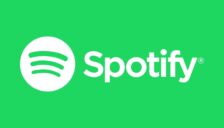Josh Constine, writing for TechCrunch:
Spotify is now testing a new “Sponsored Song” ad unit that a company spokesperson tells us is “a product test for labels to promote singles on the free tier.”
Instead of appearing as obvious ad banners like Spotify’s existing ads, labels can pay to have Sponsored Songs appear on playlists you follow or potentially elsewhere on the service. These can be targeted to appear to users with matching listening tastes so they fit alongside their other music. And these Sponsored Songs will be instantly playable and saveable instead of requiring an initial ad click first.
It’s an interesting idea. My first thought was that music listeners really fucking hate when people mess with their playlists/catalog, but I wonder how many of those die-hard music listeners don’t already subscribe to the paid tier of Spotify to begin with? (The paid tier doesn’t have these ads.) A few places are referring to this practice as “payola:”
This is the basic equivalent of payola, the old and illegal tactic where labels would pay radio stations to play their music. If the advertised songs are clearly labeled as paid advertisements, Spotify’s feature might be technically legal, but the effect will basically be the same.
I don’t think I’d go that far.


